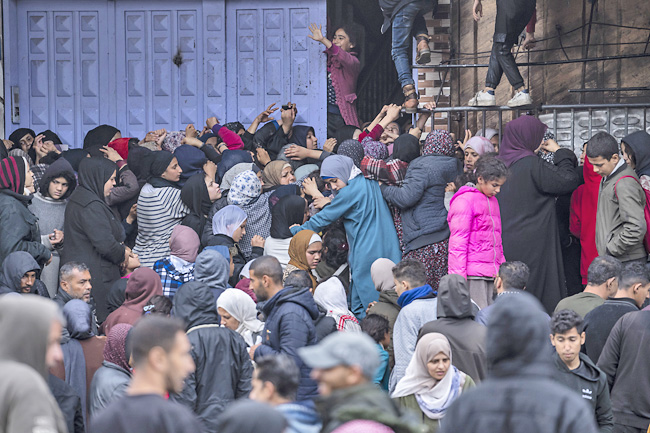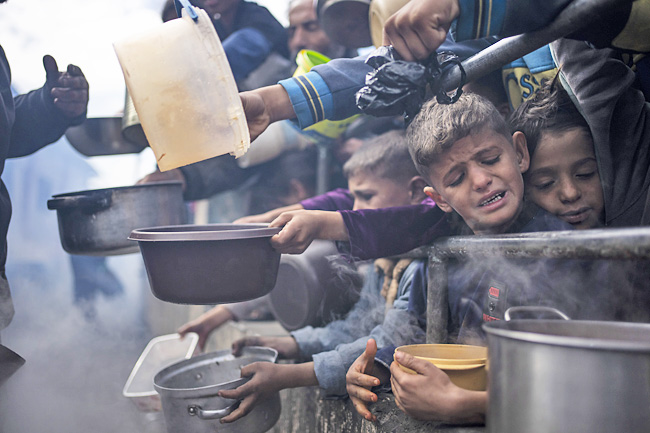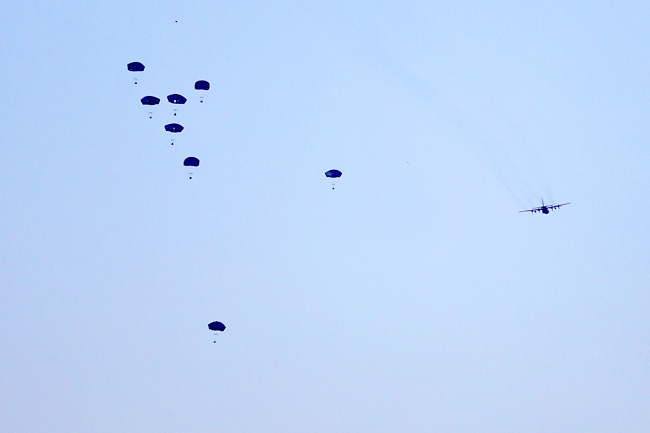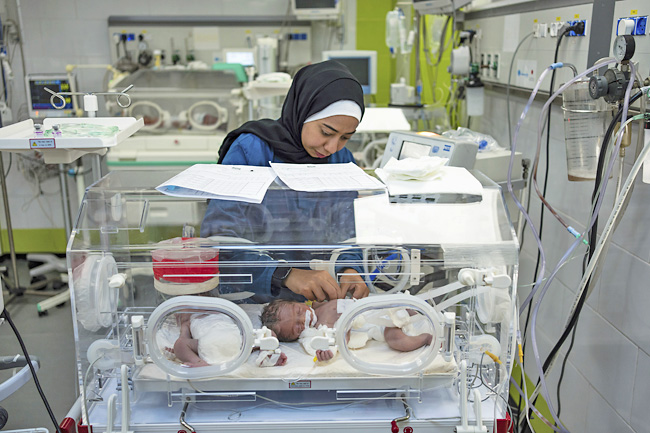RAFAH (AP) – It’s not just Israeli bombs that have killed children in war-ravaged Gaza – now some are dying of hunger.
Officials have been warning for months that Israel’s siege and offensive were pushing the Palestinian territory into famine.
Hunger is most acute in northern Gaza, which has been isolated by Israeli forces and has suffered long cutoffs of food supplies. At least 20 people have died from malnutrition and dehydration at the north’s Kamal Adwan and Shifa hospitals, according to the Health Ministry. Most of the dead are children – including ones as old as 15 – as well as a 72-year-old man.
Particularly vulnerable children are also beginning to succumb in the south, where access to aid is more regular.
At the Emirati Hospital in Rafah, 16 premature babies have died of malnutrition-related causes over the past five weeks, one of the senior doctors told The Associated Press (AP).
“The child deaths we feared are here,” the United Nations Children’s Fund’s (UNICEF) Middle East chief Adele Khodr said in a statement earlier this week.
Israel’s bombardment and ground assaults have already wreaked a high toll among children, who along with women make up nearly three-quarters of the more than 30,800 Palestinians killed, according to the Gaza Health Ministry.




Malnutrition is generally slow to bring death, striking children and the elderly first. Other factors can play a role. Underfed mothers have difficulty breastfeeding children. Diarrheal diseases, rampant in Gaza due to lack of clean water and sanitation, leave many unable to retain any of the calories they ingest, said a UNICEF child nutrition expert Anuradha Narayan. Malnutrition weakens immune systems, sometimes leading to death from other diseases.
Israel largely shut off entry of food, water, medicine and other supplies after launching its assault on Gaza.
Israel has blamed the burgeoning hunger in Gaza on United Nations (UN) agencies, saying they fail to distribute supplies piling up at Gaza crossings. UNRWA, the largest UN agency in Gaza, said Israel restricts some goods and imposes cumbersome inspections that slow entry.
Also, distribution within Gaza has been crippled, UN officials say convoys are regularly turned back by Israeli forces, the military often refuses safe passage amid fighting, and aid is snatched off trucks by hungry Palestinians on route to drop-off points.
With alarm growing, Israel bent to United States (US) and international pressure, saying this week it will open crossings for aid directly into northern Gaza and allow sea shipments.
DESPERATION IN THE NORTH
Conditions in the north, largely under Israeli control for months, have become desperate. Entire districts of Gaza City and surrounding areas have been reduced to rubble by Israeli forces. Still, hundreds of thousands of Palestinians remain.
Meat, milk, vegetables and fruit are nearly impossible to find, according to several residents who spoke to the AP. The few items in shops are random and sold at hugely inflated prices – mainly nuts, snacks and spices. People have taken barrels of chocolate from bakeries and are selling tiny smears of it.
Most people eat a weed that crops up in empty lots, known as ‘khubaiza.’ Fatima Shaheen, a 70-year-old who lives with her two sons and their children in northern Gaza, said boiled khubaiza is her main meal, and her family has also ground up food meant for rabbits to use as flour.
“We are dying for a piece of bread,” Shaheen said.
Qamar Ahmed said his 18-month-old daughter, Mira, eats mostly boiled weeds. “There is no food that suits her age,” said a researcher with Euro-Med Human Rights Monitor and an economic journalist Ahmed. His 70-year-old father gives his own food to Ahmed’s young son, Oleyan. “We try to make him eat and he refuses,” Ahmed said of his father.
Mahmoud Shalaby, who lives in the Jabaliya refugee camp, said he saw a man in the market give a bag of potato chips to his two sons and tell them to make it last for breakfast and lunch. “Everyone know I has lost weight,” said Shalaby, the senior programme manager for the aid group Medical Aid for Palestinians in northern Gaza.
The acting head of Kamal Adwan Hospital Dr Husam Abu Safiya told the AP his staff currently treats 300 to 400 children a day, and that 75 per cent of them are suffering from malnutrition.
Recent airdrops of aid by the US and other countries provide far lower amounts of aid than truck deliveries, which have become rare and sometimes dangerous. UNRWA says Israeli authorities haven’t allowed it to deliver supplies to the north since January 23. The World Food Organization, which had paused deliveries because of safety concerns, said the military forced its first convoy to the north in two weeks to turn back.
When the Israeli military organized a food delivery to Gaza City last week, troops guarding the convoy opened fire – on a perceived threat, the military says – as thousands of hungry Palestinians mobbed the trucks. Some 120 people were killed in the shooting, as well as by being trampled in the chaos.
WORSENING SOUTH
Yazan al-Kafarna, 10, died recently after almost a week of unsuccessful treatment in Gaza’s southernmost city of Rafah. Photos of the boy showed him extremely emaciated.
Al-Kafarna was born with cerebral palsy, a neurological condition that affects motor skills and can make swallowing and eating difficult. His parents said they struggled to find food he could eat, including soft fruits and eggs, since fleeing their home in the north.
He died due to extreme muscle wastage caused primarily by lack of food, according to head of the children’s emergency department at Abu Youssef Najjar Hospital Dr Jabr al-Shair.
On a recent day, around 80 malnourished children crowded the hospital’s wards. Aya al-Fayoume, a 19-year-old mother displaced to Rafah, had brought her three-month-old daughter, Nisreen, who has lost vast amounts of weight over the winter months, sick with persistent diarrhoea and vomiting. On her diet of mainly canned goods, al-Fayoume said she doesn’t produce enough breast milk for Nisreen.
“Everything I need is expensive or unavailable,” she said.
Fresh food supplies in Rafah have dwindled, while its population has swelled to more than one million with displaced residents.





